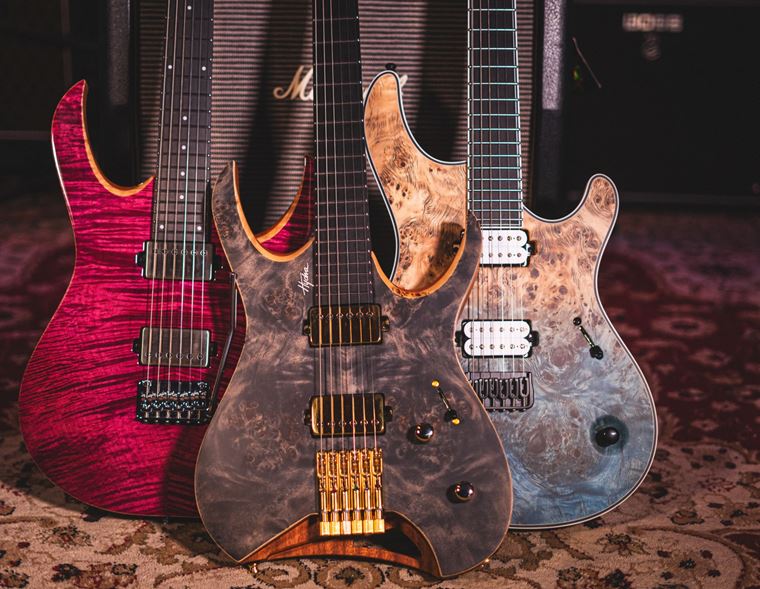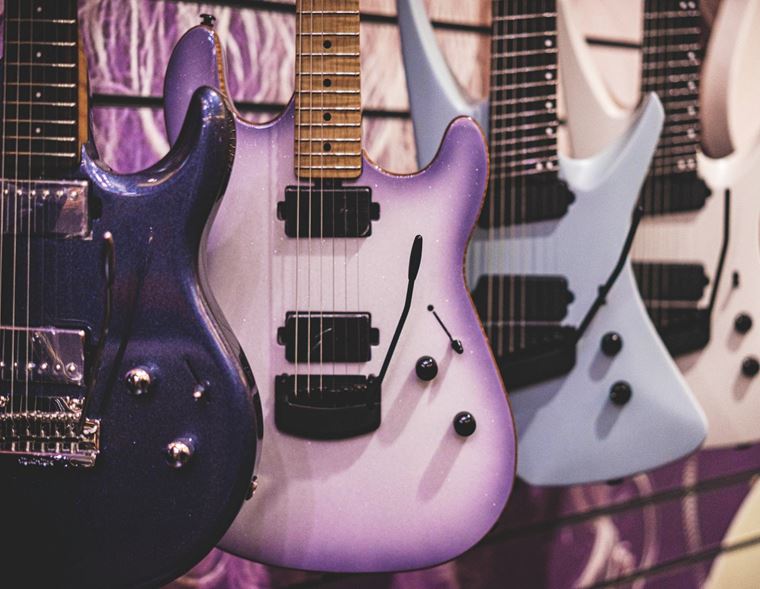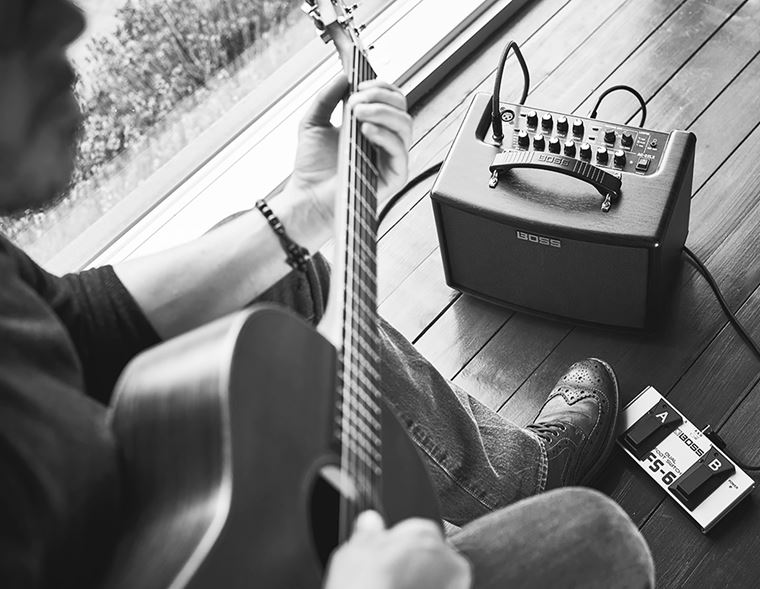Shure Wired and Wireless Mics: Which is Best?
Published on 11 January 2024
In the market for a new microphone? If so, I bet you’re wondering whether it’s better to stick with your trusty wired mic or ‘go wireless’, right? It’s an important decision, and one I aim to address today.
As a gigging musician and vocalist, I’ve been using wired and wireless mics for years. This means that the advice I pass on today is from personal experience, gathered from playing in dark, sweaty venues across the country and making plenty of mistakes along the way.
I’ve also been a salesperson on the guitarguitar shop floor, so I’ve talked to countless other musicians about their needs and experiences over the years. All of this will hopefully prove useful to you when navigating this topic.
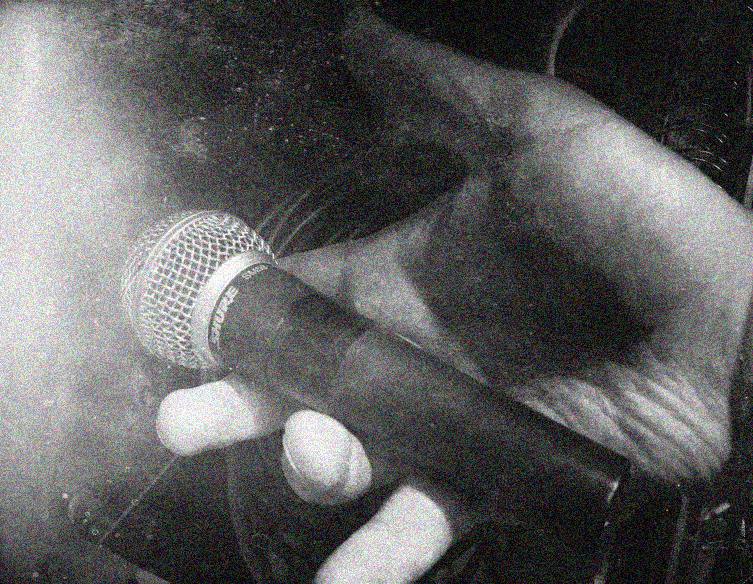
It may seem obvious, but it’s worth stating that I’m focusing on dynamic mics for live performance, generally for vocalists. I can’t see studio-used mics needing to be wireless at all, so we’ll keep examples and references to situations that relate to live vocals, be that singing or speaking (presenting etc).
Since we are big Shure dealers, and they are arguably the biggest mic brand in the world (especially for live performances), I’m going to base my blog around their models. After all, there’s no musician reading this who doesn’t know what an SM58 is!
Contents
Is There a Quality Difference Between Wired & Wireless Mics?
Drawbacks of Wired Microphones
Benefits of Wireless Microphones
Drawbacks of Wireless Microphones
What is a Wired Mic?
First off, just to get our terms straight, what is a wired mic? A wired mic is what many people would also call a ‘normal’ or ‘regular’ microphone. That is, it’s a microphone that connects to a cable (normally via an XLR connection) and operates in a passive manner, in the sense that it does not require a battery to give it any additional power. That’s not quite a definition (loads of wired mics DO need batteries or phantom power from a desk) but that goes beyond the scope of today’s blog. For the purposes of today, we’re talking about the mics used primarily by vocalists for live performances.

An obvious example of a wired microphone in this context is the aforementioned Shure SM58. It’s easily the most well-known, most often used and most relied upon microphone in the world. It is the standard around which all other dynamic mics are compared. It’s tough as hell, suits lots of uses and sounds great.
What is a Wireless Mic?
What, then, is a wireless mic? Well, the part that you interact with as a performer is superficially pretty similar. It looks roughly the same (the handle section is typically a little longer) and it may be heavier since the mic will need a battery or two to power it. Crucially, this is not to do with sound or tone generation: it’s to enable the mic to be wireless.
A wireless mic actually comes in two parts: a transmitter and a receiver. The transmitter is the part we just spoke about: the bit that looks like a mic! It transmits your vocal to the receiver, a small black box that plugs into the mains. The receiver is where the power switch is, and where you’ll select any functions etc.

In the past, mics like this used radio frequencies to operate on, and problems such as ‘drop outs’ could occur (where you lose your signal because other devices in the vicinity - from taxis to police radios - are all using the same wavelengths to interact), something that's much less of an issue these days.
In terms of Shure mics, you can get wireless versions of their most popular vocal mics, from the affordable wireless PG58 to the industry standard wireless SM58 and the cream-of-the-crop wireless Beta 58. Wireless mics are naturally more expensive than wired mics, but these different price tiers allow performers more options when choosing a system.
Is There a Quality Difference Between Wired & Wireless Mics?
It’s worth asking this question: is there a difference in quality between the wired and wireless versions of a particular mic?
Let’s take the SM58 once again as our example. Its wireless equivalent has exactly the same capsule (the capsule is the most significant part, where the signal is created) as the wired version. There is no difference there at all. This means that the difference is in how that signal is dealt with, if you will.
The wired option is a direct connection from device to mixing desk, so a good quality cable will get you a consistent, excellent signal. The wireless version will, in most circumstances, sound identical to the wired mic. In these digital days, ‘drop out’ is countered by having backup frequencies at the ready for the signal to jump across to in the event of a drop out. This is good news, since it means you’ll get a constant signal instead of absolutely nothing, which is what happens when/if you do lose your signal. In the previous radio frequency days, you’d get volume drops and interference (the Spinal Tap scene with radio stations coming through the guitar amp is not an exaggeration!): these days - because digital is a series of ones and zeros, you get everything or nothing.
As you’d expect, other mic models behave in the same manner, and have the same model correlation: the wireless Beta 58 has exactly the same capsule as the wired Beta 58 and so on.

Benefits of Wired Microphones
- Cheaper
- Very reliable
- Predictable
- Replaceable
- No batteries or mains power needed
- Signal drop-out is not a thing
Drawbacks of Wired Microphones
- Cables to trip over
- Limited movement available to performer
Benefits of Wireless Microphones
- Complete freedom of movement on stage
- No cables to trip over
- Current technology means almost no fear of drop-out
- No licence required for current digital units
Drawbacks of Wireless Microphones
- Batteries required for transmitter
- Mains power needed for receiver
- Transmitters and receivers are often not interchangeable
- Still somewhat susceptible to interference, though much less than in previous years
- Licence required for older units (if using ‘Channel 38’, so Google that one if you have an older unit)
NOTE: On the subject of licences, any production or performance in the UK that uses 8 or more wireless microphone systems will need to obtain a licence. Check the rules in your local area and make sure you know the law!
Which is Right for You?
So, you now know the difference between a wired mic and a wireless one. You’ve checked out the benefits and drawbacks now as well. The only question that remains is: which do you go for?
Your budget will determine whether you go for a PG58, SM58 or Beta 58 in any case, but I’m really asking: should you go wired or wireless? Here’s what I think, to finish off this article.
- If you are a performer who wants to express themselves through movement and physicality, then you need a wireless mic.
- If you want to break away that barrier created by a mic stand, then you need a wireless mic.
- If you find that cables are a constant issue for you on stage, get a wireless mic.
- If you want to keep your setup simple, go for a wired mic.
- If you play an instrument as well as singing, then it makes very little difference which you choose.
- If you have less money to spend, a good wired mic beats an average wireless mic.
If you want noticeably nicer vocal reproduction in a mic that is road-worthy in terms of toughness, spend the extra on a Beta 58 over an SM58. Whether you go wireless or not will depend on how you reacted to those previous points! A Beta 58 is an objectively nicer sounding mic due to its increased brightness. Oftentimes, a lead singer will use a Beta 58 and their backing singers will use SM58’s because it’s light automatic mixing: the Beta 58 will stick out a little more, even if every setting in the mixing desk is the same for both mics. So bear that stuff in mind.
One Thing You NEED To Do
Here’s a tip for you. I’ve been doing this for years and so have loads of other bands that I know. It’s simple, it’s effective and it can totally save your ass at a gig. Here it is: Whatever you choose to do about your microphone situation, buy a wired SM58 and a decent 20ft cable. Get those two things in your equipment bag AT ALL TIMES. In the heat of battle, with all manner of potential problems occurring, you’ll thank your lucky stars that you have a solid, reliable and good-sounding mic to hand, and the cable to connect it with. If you have this, above all else, you can perform.
Don’t skip this one! It’s like how the Hitchhiker's Guide to the Galaxy advises everyone to carry a towel in their backpacks because it can be used for so, so many purposes. This is time-honoured advice!
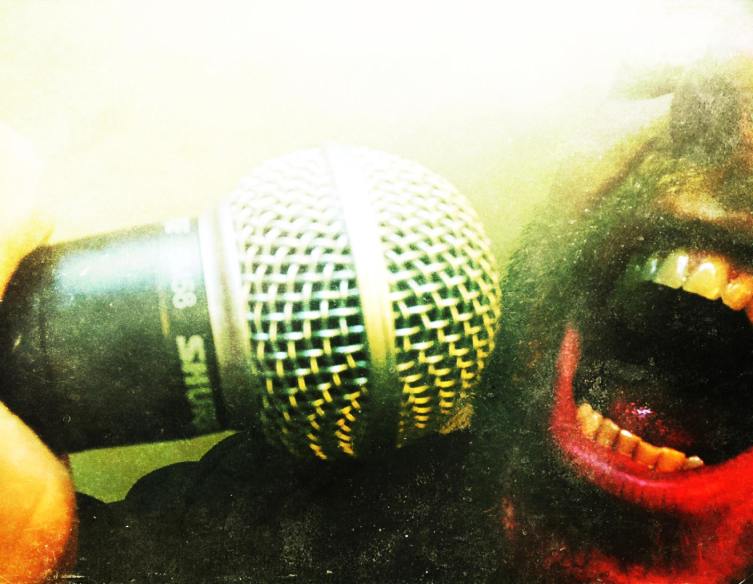
That’s about all of my advice for you today. I’d say to buy as good a mic as you can afford, but you already know that. I’d say that Shure are the market leaders because they are incredibly reliable, but then you already know that. Choose the path that seems to resonate the most with you - and remember my tip - and you can’t go wrong.
Click to View our Shure Microphones





